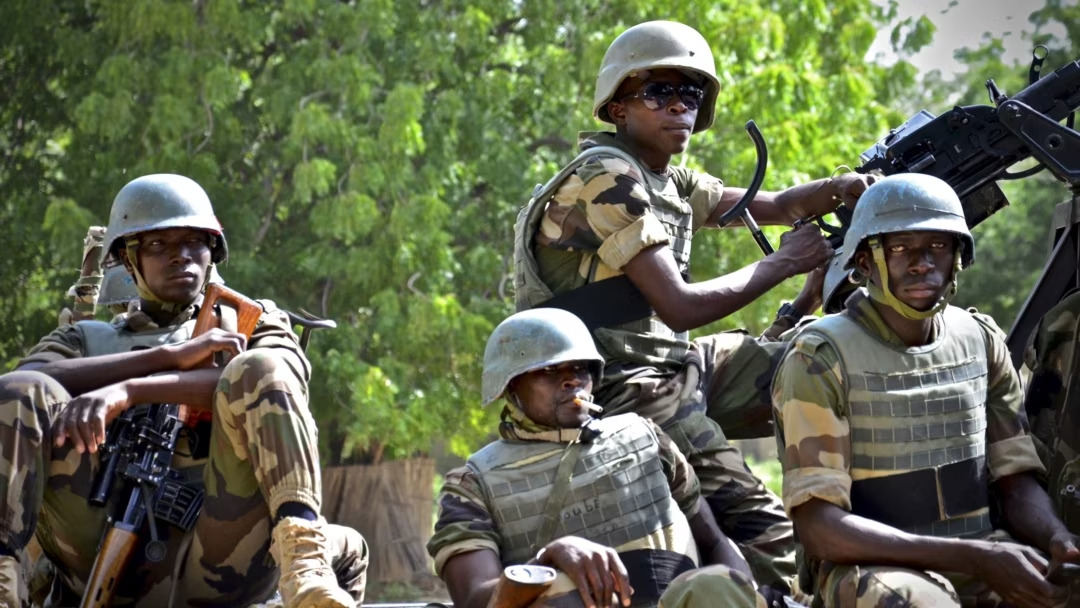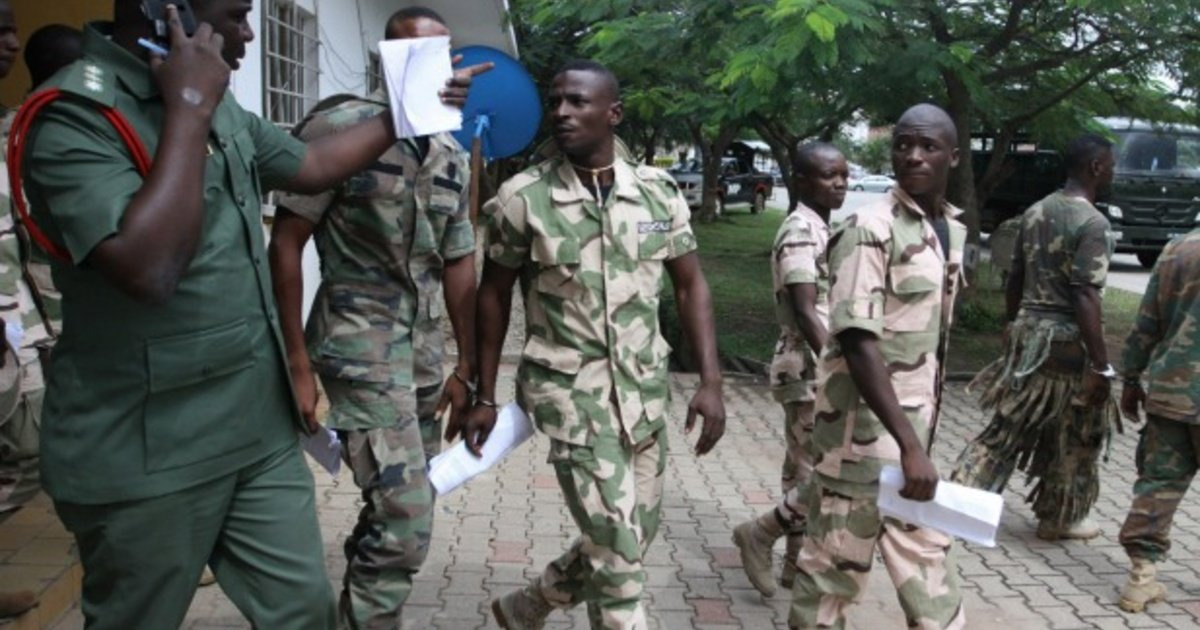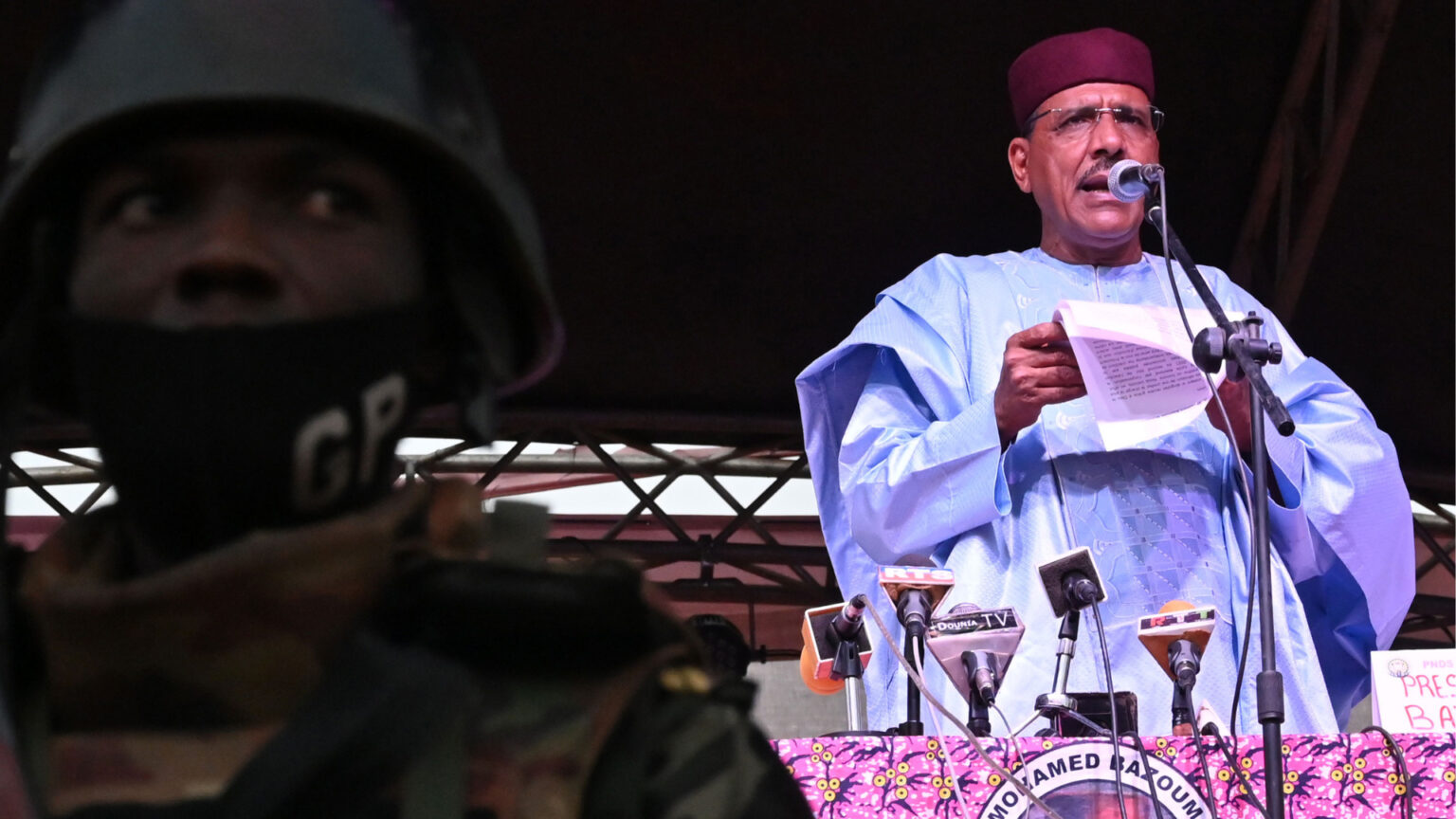The Niger government was deposed by a military coup. Moments after Niger’s President Mohamed Bazoum was purportedly taken hostage by members of the presidential guard, a group of soldiers led by Colonel-Major Amadou Abdramane addressed the public through national television to declare they had dissolved the constitutions.

Incidents in Niger recently
The soldier said that a countrywide curfew was in effect and that the nation’s borders were closed. Additionally suspended were all national institutions, he said.
Nine more cops in fatigues surrounding Abdramane as he gave out his confession as he was seated. The organization, which refers to itself as the National Council for the Safeguarding of the Country, issued a caution against any outside interference.
The declaration followed a day of ambiguity during which the Niger presidency claimed that members of the elite guard unit were participating in a “anti-Republican demonstration” and news organizations claimed that Bazoum was being detained at the palace by the mutinous soldiers.
The location of the president at the time of Abdramane’s declaration and whether or not he had resigned were unknown.
After hours after being detained by a section of the presidential guard at the politician’s official mansion, troops in Niger claimed to have ousted President Mohamed Bazoum from office late on Wednesday.

Colonel-Major Amadou Abdramane declared on national television that “the defence and security forces… have chosen that they will put a stop to the government you are familiar with.”
Since early on Wednesday, soldiers from the presidential guard have been keeping Niger
President Mohamed Bazoum in custody.
The US promptly demanded the release of Bazoum
“I spoke with President Bazoum earlier today and made abundantly clear that the US resolutely recognizes him as the elected leader of Niger,” US Secretary of State Antony Blinken said to reporters in New Zealand.
We demand his immediate release, he declared.
The military coup, the sixth in West and Central Africa since 2020, might make it more difficult for the West to assist Sahelian nations in their struggle against armed organizations with ties to al-Qaeda and ISIS (ISIL).
The former French colony of Niger, which is a landlocked nation, is a crucial ally for Western nations aiming to counter armed organizations. It also works closely with the European Union to combat undocumented immigrants from sub-Saharan Africa.
Bola Tinubu, the president of Nigeria, declared that the ECOWAS committee will rebuff any efforts to overthrow the government of Niger. Tinubu was chosen this month to chair the commission.
United Nation’s take
In a statement he released in Abuja, Tinubu said: “It should be obvious to all participants in the Republic of Niger that the leaders of the ECOWAS region and all supporters of democracy around the globe will not accept any situation that disables the democratically elected government of the nation from functioning.”
“We will exert every effort possible to ensure that democracy is firmly established, nurtured, deeply rooted, and flourishes in our region.”
Patrice Talon, the president of the neighboring Benin, visited Tinubu in Nigeria on Wednesday morning before taking a flight into Niger to examine the situation.
Talon told reporters in the Nigerian capital that “all means will be applied, if necessary, to reestablish constitutional order in Niger, but the ideal scenario would be for all things to be accomplished with peace and cooperation.”













